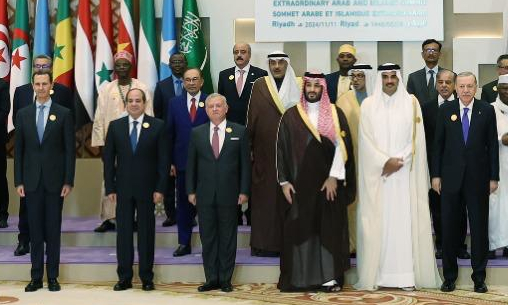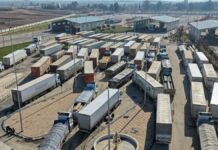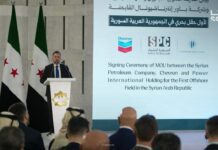
After months of diplomatic maneuvering and mediation efforts by Russia, Turkey’s push to normalize relations with the Assad regime appears to have stalled. The process, initially intended to foster cooperation on security issues and pave the way for Turkey’s eventual withdrawal from Syria, has now come to an impasse, with neither side willing to meet key conditions for reconciliation.
Russian officials, including Putin’s Special Envoy for Syria, Alexander Lavrentiev, have publicly acknowledged the complexities surrounding Turkey’s normalization with Syria. Lavrentiev noted that one of the main sticking points remains Turkey’s reluctance to set a date for withdrawing its forces from northern Syria – a critical demand from the Assad regime. Ankara has repeatedly indicated that the security environment and ongoing threats from PKK forces prevent it from committing to a specific timeline for withdrawal.
“The Turkish side has indicated that the current time is not appropriate for withdrawal,” Lavrentiev said, adding that ongoing discussions may help “push forward” the normalization process. He emphasized that Assad is hesitant to engage directly with Turkish President Erdogan unless tangible results are in sight. “How can the head of the Assad regime meet with someone without any visible results from this meeting?” Lavrentiev stated, highlighting the regime’s skepticism regarding the normalization process.
The strained relationship between Erdogan and Assad was further highlighted at the recent Arab-Islamic Summit in Riyadh, where Erdogan appeared to leave the summit hall just before Assad began his speech. Erdogan’s exit was perceived by many observers as a sign of the deep-seated animosity and mistrust between the two leaders. It underscored the unlikelihood of a meaningful rapprochement, despite Turkey’s previous attempts to engage diplomatically with Assad under Russian mediation.
The history of tension between Erdogan and Assad has been marked by hostility and irreconcilable differences over Syria’s future. Turkey has supported revolutionary forces in Syria since the beginning of the Syrian conflict and currently maintains a military presence in northern Syria, where it has established buffer zones aimed at curbing PKK influence. Assad, for his part, views Turkey’s presence in Syria as an occupation and has demanded a full Turkish withdrawal as a prerequisite for any reconciliation.
This is not the first time Turkey has attempted to mend ties with Assad, only to see efforts fall flat. Over the past decade, several rounds of dialogue and mediation, often brokered by Russia and Iran, have ended without substantial progress. Despite Russia’s encouragement for both leaders to prioritize normalization, practical barriers – such as Turkey’s security concerns regarding PKK groups and Assad’s insistence on Turkish withdrawal – continue to prevent a breakthrough.
Lavrentiev’s comments underscored the Russian position that Turkish-Assad normalization remains a “priority” in Moscow’s regional strategy. Yet, without a mutually acceptable compromise on Turkey’s military presence in Syria, normalization efforts are unlikely to advance. Moscow has maintained that reconciliation between Ankara and Damascus is essential for stabilizing Syria and achieving a comprehensive political solution, but the interests of Turkey and the Assad regime remain fundamentally at odds.
As it stands, the prospects for Erdogan and Assad meeting face-to-face appear remote. Erdogan’s strategic calculations, influenced by national security concerns and political considerations, make it difficult for Turkey to withdraw from northern Syria without guarantees regarding PKK forces. Assad, meanwhile, insists that Turkey must first commit to a withdrawal timeline, unwilling to consider normalization without assurances that Turkish troops will leave Syrian soil.
With the normalization process effectively stalled, Turkey and the Assad regime seem poised to continue on their current paths, with Assad consolidating control over much of Syria with support from Iran and Russia, and Turkey maintaining its hold over parts of the north. Russia’s insistence on pursuing Turkish-Assad normalization will likely continue, but the entrenched positions of both Ankara and Damascus indicate that any progress if it comes at all, will be slow and contentious.
For now, the frosty exit of Erdogan before Assad’s speech serves as a symbolic reminder of the unresolved tensions and obstacles that have hindered Turkey-Syria relations for over a decade. Despite Russian mediation, the vision of Turkish-Assad normalization remains elusive, with Erdogan and Assad’s differing objectives unlikely to converge in the near future.








